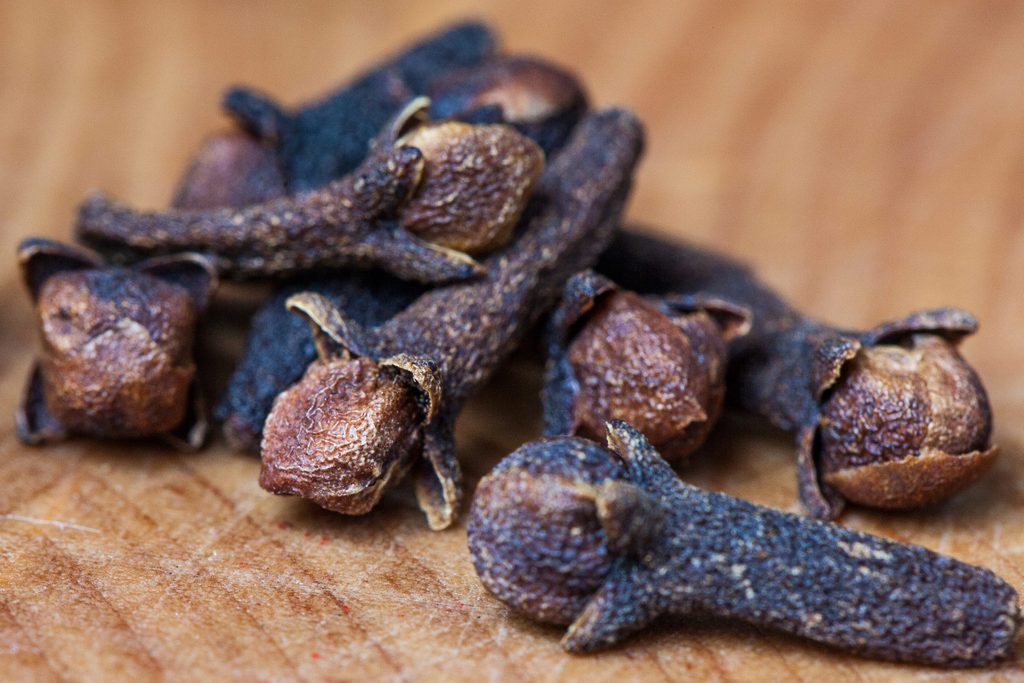Benefits of Cloves: A Natural Remedy for Tooth Pain
Updated: Jun. 17, 2016
A science-backed source for pain relief.

The sweet, penetrating aroma and flavor of cloves have been valued for thousands of years. Cloves are the dried immature flower bud of the clove tree, indigenous to the Malaccas, today’s Indonesia. Clove trees can live to over 150 years. In 17th-century Europe pomanders of oranges liberally studded with cloves were carried in an attempt to stave off the plague. It is the oil of clove that is most often used for medicinal purposes.
How Cloves Work:
The old wives’ tale of clove oil helping take away the pain of a toothache is backed up by science. Eugenol, the main active component in clove oil, has profound anesthetic and analgesic (pain-relieving) properties. It appears to block certain pain receptors, the effect beginning after about five minutes and lasting up to 15 minutes. One study showed clove oil to be as effective as benzocaine, a dental local analgesic, when used before needle insertion. Due to its antiseptic properties, clove oil is useful in preventing gum disease.
While the essential oil is most often used in remedies, clove powder has been found to be very effective as a deworming agent and in Ayurvedic medicine cloves are used to help treat nausea, flatulence and indigestion. Naturopaths often use clove oil or powder to reduce intestinal, fungal, bacterial, and/or parasitic overgrowth.
How to Use Cloves to Relieve Pain:
For headaches, dab a drop of clove oil onto each temple and massage with firm pressure in small circles. For toothache, chew on a clove or apply a single drop of clove oil to the affected area. For a mouthwash, add 2–3 drops of clove oil to 2 tablespoons (30 ml) of water, gargle, swill and spit out. For intestinal worms or bacterial overgrowth, capsules are available that contain dried cloves or clove oil. Follow label instructions or take as professionally prescribed.
Safety first: Clove oil can be toxic if ingested. There is also the potential for topical application to be a skin irritant. Clove oil has not been widely tested during pregnancy or breast-feeding so it is best avoided or used only under medical supervision during these periods.
Where to find cloves: Clove oil and enteric-coated capsules are available in health food stores or from a qualified herbalist.
MORE: 10 of the Most Healing Herbs and Spices

Get More Natural Remedies Doctors Approve!
The book Doctors’ Favorite Natural Remedies offers effective ways to treat more than 85 health conditions and evaluates the most commonly used alternative therapies and supplements. Learn more and buy Doctors’ Favorite Natural Remedies here.